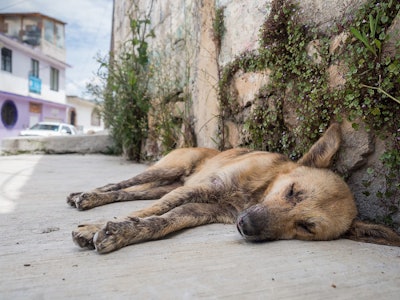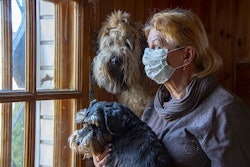
With the unemployment rate escalating due to the COVID-19 outbreak, incomes are at stake, and consumption – including for pet food – will likely suffer in the next weeks and months.
In Latin America, an ample portion of workers are employed in the “informal” economy comprising low-skilled, low-wage jobs. In Guatemala, for example, informal jobs represent 74% of the total labor force, in Mexico, 57%, and it decreases down to 31% in Costa Rica, the country with the highest formally employed rate in the region.
Problems arising from informality are several, yet the main one is low pay. These workers do not have access to social security benefits, such as unemployment insurance and healthcare support.
Two scenarios for Latin American economy
With the devastating effects of the pandemic on the economy, particularly on consumption, it is likely that millions of informal (and formal) workers will face short-term struggles to buy products. In countries where governments have weak fiscal plans to smooth the negative impacts of the outbreak, the outcome will be even more shattering.
Another problem is that informal workers cannot follow the social distancing policies that governments are imposing to help reduce the coronavirus contagion rate. Informal workers need to continue working outdoors or having social contact to earn money.
Under these circumstances, there are two scenarios for the Latin American region. The first one is that local governments will prioritize the economy over health, allowing people to continue go out for work, regardless of the rising rate of contagion. Or, in the second scenario, governments will reinforce obligatory quarantines and continue shutting down establishments, with a larger impact on the economy.
Effect on the pet food market
In the two scenarios outlined, consumption falls, yet more severely with the latter. As pet food is considered an essential product, production will not likely experience deep shortages. However, on the demand side, consumption may drop, depending on the depth and length of the pandemic.
Although pet food is typically not affected by economic slowdowns, the current outbreak does not signify a simple economic downturn, but a combination of shocks that will ultimately impact the employment and income of millions. For example, in Mexico, forecasts for the economic slump range from -3.5% to -8% in GDP for 2020, with a sharper two-digit decline in private consumption.
As Latin America is stocked with inexpensive pet food products, one could expect that consumers will downgrade from premium to economy brands as their personal economic situations worsen. However, the situation might be different if millions of informal workers lose their jobs.
Projection for Mexican pet food market
It is tricky making forecasts as there is limited past information on pet food consumption and economic recessions. Referring again to the Mexican economy, if GDP falls by about -5% in 2020, pet food will likely resist such a decline yet will still decrease, just not in the same proportion: about -1.3 percentage points growth in volume terms.
View our continuing coverage of the coronavirus/COVID-19 pandemic.


















